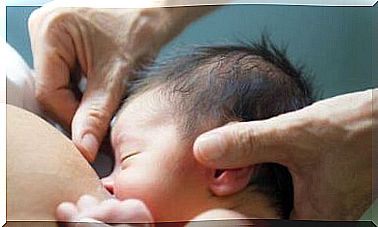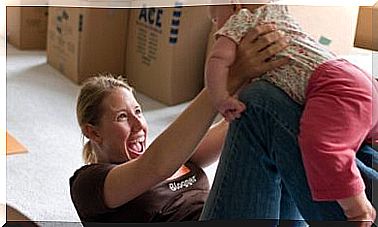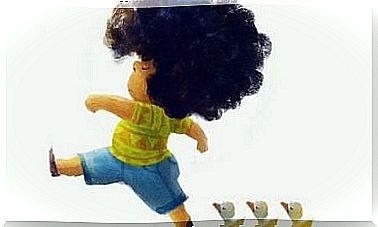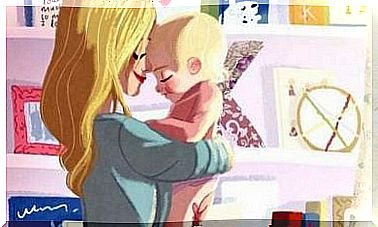My Child Eats Little, Do I Have To Worry?
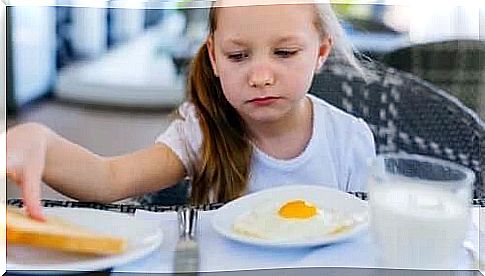
From the age of two, children grow a little slower and their food needs are reduced. Also, since they have already learned to walk, they seem more interested in discovering the world around them than in eating. If my child eats little, should I be worried?
When children are between the ages of two and five, they are still at a stage where they slowly begin to develop their eating habits, preferences and tastes. Gradually they discover which foods they prefer and which ones they hate. It is possible that at some point they no longer crave the foods they ate frequently.
Like everything at this age, this is a transitory time. Surely we must pay attention to the evolution of our children, but we must not be alarmed by their every change. The important thing is to make sure they eat and maintain a stable and healthy weight.
There will be times when they are very hungry and eat large amounts of food and others when they will barely have an appetite. This condition will last until puberty.
Pediatricians advise to respect these phases and not to force children to eat food they do not want. This attitude can also help prevent overweight and obesity.
Many parents worry when their children go through stages where they eat little. They live badly when children don’t want to eat or when they start saying: “I don’t like this food!”, “I don’t eat this!”, Etc.
It’s best to be patient and firm, as it’s easy to give in to children’s whims and complaints when they don’t want to eat. Patience, firmness and perseverance will be your allies to teach your children good eating habits and how to maintain a healthy and balanced diet.
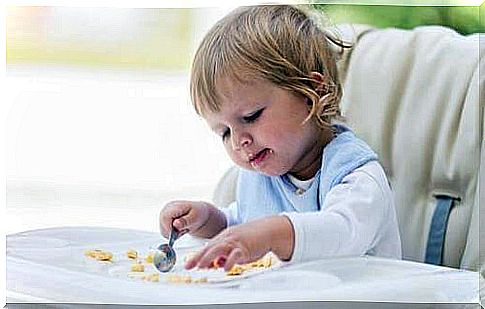
My child eats little for his age, should I worry?
It is important that mealtimes are a pleasant time and not a tense time. To prevent this from happening, you can use several strategies:
- Explain to your children that to grow healthy and strong they must eat well and in a balanced way.
- It is also important to establish rules that must be respected when sitting at the table. Clearly, they don’t have to be very strict.
- Children should sit at the table with their parents and siblings. As you surely know, you are their role model.
- Keep in mind that when your child is hungry, he will eat. His appetite will allow him to meet his nutritional needs.
- Serve moderate amounts of food. It is preferable that your children ask for an extra portion instead of leaving it on the plate and then throwing it away.
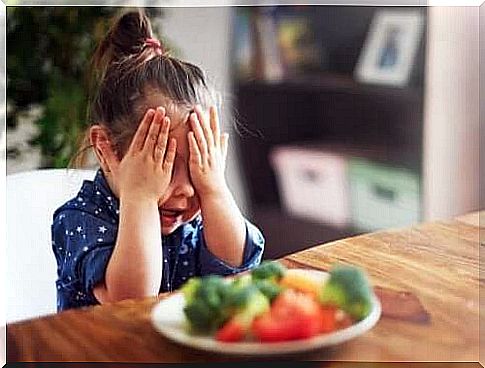
From the age of two, it is recommended that the child try different types of foods. Of course, some will like them more and others less. Try, within reason, to respect his tastes and make sure his diet is balanced.
At that age it is good for them to learn to eat on their own. It doesn’t matter if they dirty or throw food all over the place, they will slowly learn how to sit at the table.
Will my child start eating more? Yes, little by little …
If your child eats little, don’t worry too much. Many children start eating more when they reach five or seven years of age. This is because they have grown, and their stomach has grown too.
Specialists tell us that the amount of food a person needs varies widely. Even though they are the same age and height, some children eat more than others.
Furthermore, parents’ expectations also vary a lot. The ideal is not to put pressure on the baby and to be patient if he does not want to eat. He will do this when he is hungry.
If your child eats little or does not want to eat, leave them without food until the next meal. Deal with the situation calmly, it is not necessary to punish him or tell him that he is bad. After all, he just skipped one meal, he will eat the next meal.
And you don’t even have to insist on making him eat a certain food. It is preferable to invite him to try that food or put it on the table and see if he eats it.
Also, there are children who eat very slowly. In these cases, you don’t have to worry about them. As a parent, decide and tell the child how much time he has to finish the meal. When he’s done, remove the pot and tell him he can go play.
